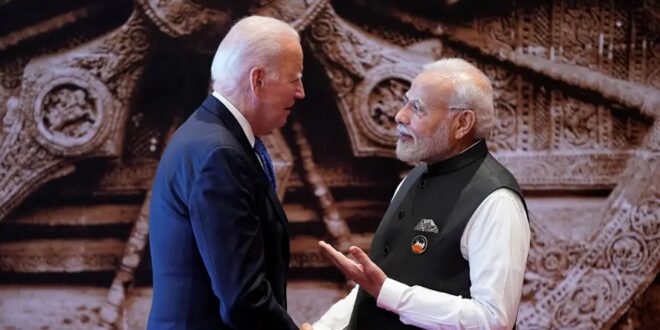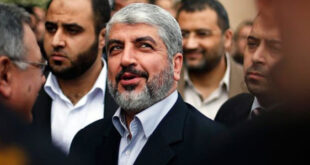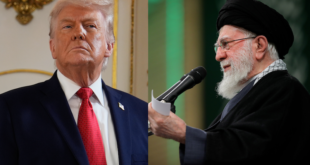For the United States, foreign policy has always been a mix of securing interests and promoting values, and India checks the box on multiple counts. Washington and New Delhi routinely highlight that the world’s oldest democracy, the United States, is cooperating with the world’s largest democracy, India. Partnering with India holds immense promise for U.S. security interests as well, particularly Washington’s strategy to counter China.
But despite widespread optimism about the future of the U.S.-India partnership, relations are considerably more fragile than they might appear. Indeed, the two countries continue to experience friction in several areas that, if left unaddressed, could ultimately undermine or even derail future cooperation.
On democratic values, for instance, the United States holds deepening concerns that Prime Minister Narendra Modi and his Hindu nationalist Bharatiya Janata Party (BJP) are making India less tolerant of minorities, especially Muslims. In 2019, the Modi government revoked the special semi-autonomous status—granted under Article 370 of the Indian Constitution—of Jammu and Kashmir, a Muslim-majority region. Since then, Kashmiris have suffered from repressive government policies that include curbs to freedom of expression, peaceful assembly, and other basic rights, according to Human Rights Watch.
Later that year, the Indian Parliament passed the Citizenship Amendment Act, providing a fast track for non-Muslims in Afghanistan, Bangladesh, and Pakistan to become Indian citizens—a move that the U.S. Commission on International Religious Freedom condemned as “a significant downward turn in religious freedom in India.” After being held up for years because of numerous protests, the law finally went into effect this March. In January, Modi’s inauguration of a new Hindu temple in Ayodhya, known as Ram Mandir, built on the ruins of the 16th century Babri Masjid mosque that Hindu nationalists tore down in 1992, raises fresh questions about India’s future as a secular and tolerant nation.
Despite widespread optimism about the future of the U.S.-India partnership, relations are considerably more fragile than they might appear.
Share on Twitter
Many policymakers in Washington continue to be concerned that Modi and the BJP have transformed India into an illiberal democracy. In 2021, Freedom House downgraded India’s score from “free” to “partly free,” citing “rising violence and discriminatory policies affecting the Muslim population.” Freedom House further observed in this year’s report that Modi’s government engages in the “harassment of journalists, nongovernmental organizations (NGOs), and other government critics” and that “the BJP has increasingly used government institutions to target political opponents.”
Notably, all of these activities have grown under Modi, who is up for reelection in April and will likely win in a landslide. For their part, Indians also worry about the state of U.S. democracy, given such events as the violent storming of the U.S. Capitol on January 6, 2021.
Last week, the Indian government upped the ante by arresting Arvind Kejriwal, the chief minister of the Delhi capital territory, ostensibly on corruption charges; Kejriwal also happens to be an outspoken critic of Modi and a member of the opposition coalition that has seen several other arrests of prominent politicians ahead of the election. India bristled at U.S. criticism of the arrest, warning Washington not to interfere in India’s “internal affairs.” India was also angered when the U.S. Embassy in New Delhi invited several Kashmiri activists to its Iftar party last week.
Recent reports that India may have backed covert missions to commit extrajudicial killings in Canada and the United States have also shocked Washington—and called the idea of shared values into question. In the case in Canada, India is accused of using agents to murder the Sikh separatist Hardeep Singh Nijjar in 2023. Since Canadian Prime Minister Justin Trudeau’s shocking revelation of the allegation in September, New Delhi has complained that Ottawa refuses to offer credible evidence and labeled Canada a “safe haven for terrorists.”
India swiftly retaliated by briefly suspending visa services for Canadians worldwide and demanding that Ottawa withdraw dozens of embassy staff from India to achieve parity with the number of Indian diplomats serving in Canada. In recent months, however, New Delhi has privately been more willing to assist in the investigation, though a fresh claim by Trudeau that India engaged in election meddling in Canada could create new tensions.
Meanwhile, the Biden administration has its own trouble with India over an alleged attempt to commit an extrajudicial killing on U.S. soil. In November, prosecutors in New York unsealed an indictment charging an unnamed Indian government official with hiring a hitman to kill the leader of the organization Sikhs for Justice, Gurpatwant Singh Pannun, whom India considers a terrorist. India officially denies any culpability, claiming that “rogue operatives” not authorized by the Indian government were involved.
Unlike with Canada, India is reportedly cooperating with U.S. authorities on the matter. Last year, the Biden administration dispatched the directors of the CIA and FBI on separate trips to discuss the Pannun case with their Indian counterparts. In India, there is palpable disgruntlement over a perceived double standard that allows Washington to use drone strikes and other means to kill suspected terrorists and militants with relative impunity.
The full effect of the Pannun case on the bilateral partnership is still unclear. In February, an Indian media outlet reported that U.S. Senate Foreign Relations Committee Chairman Ben Cardin planned to place a hold on the U.S. sale of MQ-9 drones to India until it was clear that Modi’s government was credibly assisting the U.S. investigation. Although Cardin ultimately decided not to place a hold on the sale after months of what he called “painstaking” negotiations with the Biden administration, it is clear that there are growing qualms on Capitol Hill about recent Indian behavior that might start impacting the relationship if the White House does not take a tougher line.
Concerns in Washington about India’s illiberalism are likely to grow in the coming years. The highly popular Modi is all but certain to be reelected this spring, and it is entirely possible that when he finally leaves office, an even more extreme Hindu nationalist successor will have emerged—such as Home Minister Amit Shah or Uttar Pradesh Chief Minister Yogi Adityanath. Shah, who has already been referred to as India’s “shadow prime minister,” has routinely defended Modi’s record as chief minister of Gujarat during the 2002 mass violence against Muslims, which Modi was accused of condoning.
In December, for example, Shah boasted that Modi had “taught a lesson” to Muslims. In 2019, Shah also referred to illegal Muslim immigrants as “termites” who need to be thrown into the Bay of Bengal. And Amnesty International has criticized Adityanath, a Hindu monk, calling him a leader who uses “hateful rhetoric that incites discrimination and hostility against minority groups, particularly Muslims.”
Meanwhile, in December, the BJP-led government suspended 141 mainly opposition parliamentarians for unruly behavior in parliament. One of those suspended, Indian National Congress party politician Shashi Tharoor, told the Guardian: “Unfortunately, we have to start writing obituaries for parliamentary democracy in India” as open debate and criticism of Modi’s government are squashed.
Worryingly, there are many recent examples of Modi’s crackdown on human rights and civil liberties—and no signs that India’s rising illiberalism will ebb anytime soon. When asked directly about India’s democratic backsliding during Modi’s White House visit in June, U.S. President Joe Biden refused to condemn Modi’s behavior, and Modi likewise deflected.
Further straining the relationship is the particular way in which India seeks to have a seat at the table of great powers. Of course, any move like this will cause friction, because it is antithetical to the U.S. goal of maintaining primacy in the international system. Although India participates in U.S.-led formats such as the Quadrilateral Security Dialogue (along with Australia and Japan) and supports some of Washington’s interests, New Delhi’s desire for multipolarity sometimes manifests itself as anti-Western.
For example, India has routinely sought to engage in multilateral fora explicitly designed to counter the West—including the China- and Russia-led BRICS group (Brazil, Russia, India, China, South Africa, and five recently added countries), as well as the Shanghai Cooperation Organization (comprised of China, Iran, Pakistan, Russia, and several Central Asian states). India also continues to maintain a strong strategic partnership with Russia, a top geostrategic adversary of the United States and its allies—for which Russian President Vladimir Putin has thanked India by calling India a “true friend.”
On the economic side, India has benefited from Russian oil sales, which help India meet its fast-growing energy needs. Since Moscow’s invasion of Ukraine, New Delhi has increasingly purchased discounted barrels of Russian oil in contravention of U.S.-led sanctions; it is now Russia’s number one export destination. India has also purchased Russian arms for decades, meaning that the majority of India’s military hardware is of Soviet or Russian build.
Thus far, Washington has looked the other way on enforcing the Countering America’s Adversaries Through Sanctions Act, which penalizes countries that purchase weapons from sanctioned Russian defense suppliers, with respect to New Delhi’s purchase of Moscow’s S-400 surface-to-air missile system. This suggests that the Biden administration views India as too important to the United States’ Indo-Pacific strategy to risk angering it with sanctions.
Rather than condemning Russia for invading and seeking to destroy a sovereign neighbor, India has retained close ties to its Cold War ally.
Share on Twitter
When Russia invaded Ukraine, Washington was hoping that New Delhi would distance itself from the Kremlin. However, India has done nothing of the sort: Rather than condemning Russia for invading and seeking to destroy a sovereign neighbor—an indisputable violation of the rules-based global order—India has retained close ties to its Cold War ally. At first, Modi’s strategy appeared destined to damage the U.S.-India partnership. In early April 2022, U.S. Deputy National Security Advisor Daleep Singh visited New Delhi and warned of potential “consequences” for countries that attempted to undermine U.S. sanctions.
By mid-April, however, the Biden administration had dramatically changed its tune. Prior to a virtual meeting between Biden and Modi in April 2022, Biden’s press secretary noted that the two leaders would continue their “close consultations” on Russia, with no indication that Washington was prepared to take any action against New Delhi. India did not have to condemn Russia or make any other concessions, such as curbing its massive imports of cheap Russian oil. On the contrary, India has continued to strengthen its ties with Russia since then.
For its part, New Delhi also has concerns about Washington’s interests misaligning with its own. India, for example, is quietly outraged at recent U.S. contacts with Pakistan, which India views as a terrorist state. Pakistan Army chief Asim Munir visited Washington in December for high-level meetings at the Pentagon and State Department, and the Biden administration has sought to widen the partnership with Pakistan since the U.S. military withdrawal of Afghanistan to include nonsecurity issues like trade and investment. There is also a long legacy in India of distrust of the United States with regard to Pakistan. Indians recall a close U.S.-Pakistani alliance during the Cold War, including support for West Pakistan (today’s Pakistan) during the Bangladesh War of Independence in 1971, when West Pakistani forces committed massacres against then-East Pakistan’s Hindu minority.
Along the same lines, India worries that the United States could be an unreliable long-term partner. After the U.S. military hastily withdrew from Afghanistan in 2021, India was left to pick up the pieces of its own policy in the region. New Delhi had maintained a strong relationship with the U.S.-backed government in Kabul. But with the return of the Taliban, India became concerned that Afghanistan could return to being a playground for terrorist recruitment and training, particularly for Islamist groups that harbor ill will toward India, such as Lashkar-e-Taiba and Jaish-e-Mohammed.
Initially, India may also have been concerned that Pakistan might benefit from gaining additional strategic depth in Afghanistan, but recent clashes between the Afghan Taliban and the closely affiliated Pakistani Taliban along the disputed Afghanistan-Pakistan border have probably tempered such concerns. A greater potential long-term threat to India is China’s growing influence in Afghanistan, which could have been avoided if the United States had stayed the course. Now, Indian ambitions in Afghanistan—including access to critical minerals—will be feverishly contested by Beijing.
If India’s own interests and questions of trust have not seriously impeded the partnership, frictions certainly persist. One growing bone of contention is climate policy, where India and Western nations have clashed over proposed emissions trajectories. India, already the world’s third-largest carbon emitter after China and the United States, has vast energy and development needs that can only be met by rapidly increasing fossil-fuel use. Arguing that the bulk of past emissions were generated by the West, India demands that the rich world bear the brunt of carbon emission reductions.
Climate policy has also become part of India’s bid to become the leading voice of the global south, which could give it a seat at the table of a new, multipolar world. India certainly shares a greater affinity for other developing countries’ policy positions than it does for those of the United States or the other great powers. Coupled with India’s engagement with U.S. adversaries—such as China, Russia, and Iran—it is conceivable that Washington could eventually become frustrated with the way that New Delhi prioritizes achieving great-power status in a multipolar world over Washington’s attempts to maintain the global status quo.
On Russia, the Biden administration has thus far allowed India to have its cake and eat it too. But if the Kremlin decides to significantly ramp up its campaign of death and destruction in Ukraine, then it is likely that the United States and other democratic countries will increase the pressure on India to make a decision on which it supports—Russia or the West. This will especially be the case if Putin decides to use a tactical nuclear weapon in Ukraine or take a similarly violent action. If New Delhi continues to sit on the fence in such a scenario, then its credibility as a responsible and emerging democratic great power will likely be at stake. If it sides with its longtime partner, Russia, it could signal the demise of the U.S.-India partnership.
If the U.S.-Pakistan partnership is revived, India will find it difficult to trust the United States as a close partner—even in countering China, their common adversary.
Share on Twitter
Washington could also take actions that push New Delhi to the brink. If the U.S.-Pakistan partnership is revived, for example, India will find it difficult to trust the United States as a close partner—even in countering China, their common adversary. Thus far, U.S.-Pakistan ties remain circumscribed mostly to counterterrorism, and the Biden administration seems to recognize the potential risks to the U.S.-India partnership. Indeed, Biden pleased Modi by calling on Pakistan in a joint statement to take “immediate action to ensure that no territory under its control is used for launching terrorist attacks.” In 2022, Biden referred to Pakistan as “one of the most dangerous nations in the world” because it has “nuclear weapons without any cohesion.”
The upcoming U.S. presidential election adds another element of uncertainty over Washington’s Indo-Pacific commitments. If Biden is reelected, then New Delhi can expect more of the same from his administration. If former President Donald Trump emerges victorious, one can expect a similarly close U.S.-India partnership, but other outcomes are in the cards as well. Trump’s “America First” policies tend to advocate withdrawing from global affairs; leading up to the election in 2016, for example, Trump included India among the countries he accused of stealing U.S. jobs. And while his administration formulated an Indo-Pacific strategy to counter China, Trump himself seemed less keen and instead sought to forge a working relationship with Chinese President Xi Jinping through a bilateral trade deal. The bottom line is that the impact of a future Trump administration on the U.S.-India partnership is simply unknown.
While it is likely that the U.S.-India relationship will continue to improve, there are many potential challenges that the two countries will have to either address or agree to ignore. Whether Washington and New Delhi can maintain and build on their tenuous partnership will shape geopolitics for the rest of the 21st century.
 Eurasia Press & News
Eurasia Press & News



